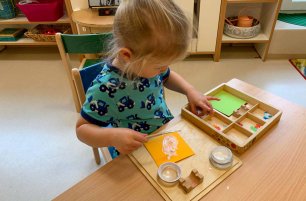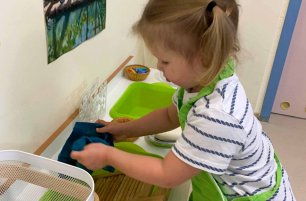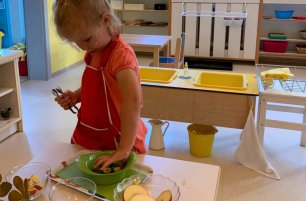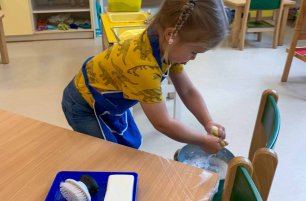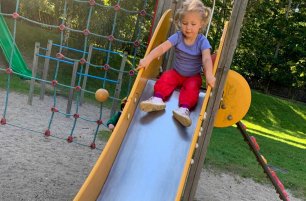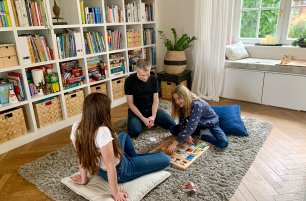Six Months as an IMSP Toddler
It has always been my priority to bring my kids up to be independent and curious and to treat them as my equal, if somewhat smaller in size; Montessori education therefore held a great appeal when it came to choosing a kindergarten. It has been six months since my daughter, who is just about to turn three, started attending IMSP and it is a joy and a privilege to observe how she thrives and develops.
I did it on my own
For starters, my daughter is very confident and proud of her achievements. Not a day goes by when I don’t hear her exclaim excitedly: “Mom, look! I did this puzzle / put on my sweatshirt / found our way home / … on my own!” Her beaming face as she shares each new success always reminds me how much she picks up every day. I wish I was half as eager a learner as her!

Chore? Say no more
She is always ready to help with all kinds of chores at home, be it washing dishes, mopping the floor, tightening a loose screw, or preparing snacks. She is attentive to what needs to be done and may soon well be the tidiest person in our household! The child-sized equipment that she uses at IMSP presents a great motivation for her and I can’t help but smile every time I see a picture of her doing chores in the class. She is so grown up and yet so cute!
An attentive friend
As a very empathic person myself, I appreciate the fact that my daughter, being one of the oldest kids in her class, takes a great deal of interest in what her younger classmates are doing and whether they need any help with it. She always knows who was sick on a particular day and wonders if they will be back the following day. All this makes her an ideal companion to her one-year-old sister and teaches her principles that I would like her to stick to throughout her life.

Mommy, let’s speak English
Last but not least, it is very rewarding for me to observe her language development and in particular her English skills. She is already capable of expressing herself in a much more complex way than I ever thought three-year-olds were capable of, even though she is not a native speaker. True, sometimes I feel a tiny pang of sadness when I hear her use a word or sing a song that I most definitely did not teach her myself; but these are the early signs that she is growing into an independent person with a unique set of skills and character, and that, after all, is my ultimate parenting goal.
By an IMSP Parent, Zuzana Burianová
Are you curious about how Montessori can help your child thrive? Contact us to schedule and individual tour.
